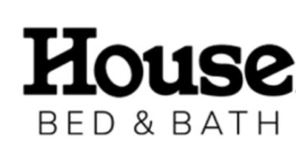- within Intellectual Property topic(s)
- with Senior Company Executives, HR and Finance and Tax Executives
- in United States
- with readers working within the Basic Industries, Retail & Leisure and Law Firm industries
The High Court of Australia has recently heard 2 cases relating to trade mark infringement and misleading and deceptive conduct, granted special leave for a further trade mark case and has another application due to be heard in November. The decisions are eagerly awaited and will provide clarity on a number of issues including:
- the role of reputation in claims for misleading and deceptive conduct and passing off, as well as how broadly reputation can be considered for the purpose of trade mark infringement;
- the defence of "honest concurrent use" to trade mark infringement and how honesty is established;
- the type of use of a mark required for the purpose of maintaining a trade mark registration; and
- what is considered "use" of a mark for the purpose of retail services.
The Bed Bath N Table Case1
The dispute has been in the courts since 2021 and arose between two homewares retailers. Bed Bath 'N' Table Pty Ltd (BBNT) has sold towels, bed linen and other soft homewares in Australia since 1976 under its "Bed Bath 'N' Table" brand. Meanwhile, Global Retail Brands Australia Pty Ltd (GRBA) has operated kitchen and cookware stores under the "House" brand since 1978.
The businesses have coexisted without issue until 2021, when GRBA sought to launch a new line of soft homewares under the name "House Bed & Bath", using the following logo:

BBNT objected to the use of the above logo on the basis that it was deceptively similar to its name and trade mark, and sued GRBA alleging trade mark infringement, misleading and deceptive conduct under s 18 of the Australian Consumer Law, and a breach of the common law tort of passing off.
The Court held:
- No trade mark infringement
- Misleading and deceptive conduct and passing off were both established
The Court found that BBNT had a strong reputation in the market in the use of "Bed" and "Bath" in that order, and consumers could be confused by GRBA's logo into thinking that the two business were connected.
Further some internal emails suggested GRBA was 'wilfully blind' as to the possibility of market confusion.
The decision on misleading and deceptive conduct and passing off was overturned by the Full Federal Court. Critically, the Full Federal Court's decision was based on the finding that BBNT had not developed goodwill or reputation in the words "Bed Bath" or "Bed & Bath". The Court held that the difference between "Bed Bath 'N' Table" and "House Bed & Bath" was 'substantial and obvious to anyone but the most careless observer' and the words "bed" and "bath" were common descriptive words.
Additionally, the Full Federal Court found that GRBA's wilful blindness as to the possibility of confusion for consumers, was not sufficient to demonstrate an "intention to deceive".
Key issues to be resolved
The High Court is now poised to deliver its decision and clarify:
- the role of reputation established through longstanding use of a mark; and
- whether intention or "wilful blindness" as to potential confusion should be taken into account,
in considering claims for misleading and deceptive conduct and passing off
The Katy Perry Case2
Australian fashion designer, Katie Taylor (formerly Katie Perry) registered the trade mark 'KATIE PERRY' in Australia for clothing in 2009. The American pop star Katy Perry (whose legal name is Katheryn Hudson) was at that time already well known in the international music industry, and was selling merchandise (including clothing) internationally.
In 2022 (and following claims of trade mark infringement from Ms Taylor), companies associated with Katy Perry applied to cancel Taylor's trade mark, arguing that Katy Perry had developed a considerable reputation in Australia prior to the 2009 registration of the 'KATIE PERRY' trade mark, and that Taylor's trade mark could mislead consumers into thinking the clothing sold under that brand was associated with the singer.
At trial, the primary judge held that:
- Katy Perry was known in Australia as a musician
- However in 2009, this reputation did not extend to clothing
The Application to cancel Taylor's trade mark therefore failed. On appeal, however, the Full Federal Court overturned this finding, and held that:
- Katy Perry's reputation extended to clothing goods
- the primary judge made an error by separating the singer's music career from the clothing goods which was the subject of the 'KATIE PERRY' trade mark
- the singer's significant reputation in the music industry could reasonably lead consumers to be confused by the use of the name in other industries, such as clothing and merchandising.
Taylor has now appealed to the High Court, which heard arguments in the matter in September 2025. Taylor has submitted that the Full Federal Court applied the 'reputation' of the singer too broadly, and made an error by considering consumer confusion by reference to hypothetical use, rather than the limited actual use which the singer made of her name in 2008.
Key issues to be resolved
This case has attracted significant attention, in no small part due to the fame of the respondent in the appeal. The Court's decision will soon resolve key issues including:
- the extent to which a celebrity's fame is relevant for a consideration of that celebrity's reputation in other industries which are not related to the primary reason why they are well-known; and
- whether the likely confusion of consumers should be decided by reference to actual use, or the full range of goods which could hypothetically be covered by the brand.
The Zip Co case3
Firstmac is a non-bank lender and has been the registered owner of the trade mark for the word 'ZIP' in respect of financial affairs since 2004. Zip Co operates a "buy now pay later" service, and had been using the name "Zip" accompanied by descriptive words such as "money", "pay", "trade" or "business" (ZipCo Marks).
ZipCo had applied for a number of trade marks for the ZipCo Marks (Zip Money, Zip Pay etc.) and had been refused by IP Australia, which cited Firstmac's registrations.
Firstmac sued Zip Co for trade mark infringement. At trial the Court found that the ZipCo Marks were not deceptively similar to the "ZIP" trade mark, and therefore there was no trade mark infringement.
On appeal, the Full Court of the Federal Court found that the ZipCo Marks were deceptively similar to Firstmac's registered mark for "ZIP". The Full Court found the trial judge made an error in placing the same weight on the words "Zip" and the accompanying words ("money", "pay", "trade" and "business"). "Zip" was held to be the distinctive feature of Zip Co's trade marks.
The question was then whether Zip Co could rely on "honest concurrent use" and use of its own name, as defences to trade mark infringement.
The Full Court reaffirmed the principles of the honest concurrent use of trade mark defence, emphasising what constitutes honesty and reiterating that honesty must be assessed at the time the trade mark was used, rather than when there was an idea to use the mark.
In particular, the Full Court noted:
- the onus is on the party relying on the defence to show that they undertook adequate searches to be able to rely on the honesty within the honest concurrent use defence
- In this case, ZipCo first applied for "Zip" and "Zip Money" in August 2013 and in October 2013 ZipCo received adverse reports refusing the applications (based on Zip's trade marks)
- Notwithstanding that result, ZipCo began using the marks in November 2013
- While knowledge of the existence of an earlier registered trade mark is not necessarily fatal to a finding of honesty, a finding of knowledge will ordinarily weigh strongly against a finding of honesty
- The relevant time to assess the "honesty" of the use, is when the mark is first use, not when its use is merely considered.
Zip Co failed to seek legal advice or address the reports issued by IP Australia. At the time of commencing use of the ZipCo Marks in November 2013, ZipCo was not using the marks "honestly" as it was then aware of Firstmac's prior trade mark.
Implications of the Decision
The case highlights the importance of businesses undertaking appropriate due diligence before using a brand. Seeking legal advice, searching the trade mark register and acting on adverse findings are indications of honesty and diligence. General internet searches may not be enough.
In September 2025, the High Court granted an application for special leave for ZipCo to appeal the Full Federal Court decision. That matter is yet to be heard, but will be eagerly awaited in setting out the principles of honesty in the context of reliance on the defence to trade mark infringement of "honest concurrent use".
More to come!
The unsuccessful party in a further trade mark case (Fanatics LLC v Fanfirm Pty Ltd) has also applied for special leave to appeal to the High Court, which is due to be heard in November 2025. We previously reported on this decision here - Fanatics case
We will report on the High Court decisions in due course – watch this space!
Footnotes
1. Bed Bath 'N' Table Pty Ltd v Global Retail Brands Australia Pty Ltd – M32/2025
2. Taylor v Killer Queen LLC & Ors - S49 of 2025
3. Firstmac Limited v Zip Co Limited [2025] FCAFC 30 and HC S85/2025
The content of this article is intended to provide a general guide to the subject matter. Specialist advice should be sought about your specific circumstances.


